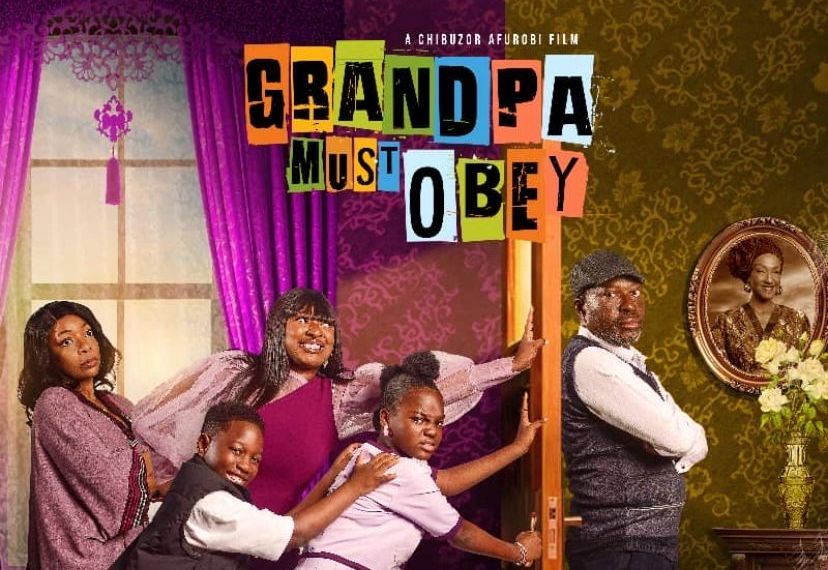From energetic football viewing centres in Surulere to lively bars in Accra, few things rally West Africans together like the UEFA Champions League. Now, new reports suggest Netflix is considering a bold move: bidding for exclusive broadcast rights to this iconic football tournament, a development that could potentially transform the way millions across Africa and the globe experience live sports.
This move comes as UEFA reportedly seeks to secure a massive £4.4 billion in annual revenue from club competition TV rights, signaling escalating competition among global streaming services for live sports. For African viewers—especially passionate Nigerian and Ghanaian fans with deep Champions League traditions—such a move could mean a seismic shift in football broadcasting.
If Netflix’s rumored bid succeeds, it would represent the company’s first major foray into live sports, moving beyond its successful library of movies and series to stake a claim in a space traditionally dominated by giants like SuperSport, Sky, BT Sport, and, more recently, Amazon Prime Video.
It’s worth noting that Netflix has been gently testing the waters with sports-themed documentaries—like the popular Drive to Survive, Break Point, and Full Swing. In January, the company stunned audiences by adding WWE Raw to its U.S. lineup, further demonstrating its willingness to experiment with new content genres.
However, live Champions League football is a completely different arena in terms of viewership, engagement, and technical requirements. If Netflix takes this step, it could not only redefine its own business model but also force a rethink industry-wide on how live sports are delivered—and paid for—across key markets like Nigeria, Ghana, and the rest of West Africa.
Why Netflix is Eyeing Football
At first glance, Netflix’s interest in Champions League rights might seem surprising. The platform is synonymous with on-demand entertainment, not appointment-viewing sports. But the real drivers go deeper. According to industry sources, this bid ties into three crucial objectives: boosting relevance, retaining subscribers, and increasing revenue.
With subscriber growth slowing in the U.S., Europe, and parts of Africa, streaming companies are proactively searching for ways to win and maintain audience attention. Few events capture real-time, communal excitement in Nigeria and Ghana quite like Champions League matches—especially during knockout rounds when Lagos streets become almost deserted as football fans crowd around TV screens, radios, and social apps to catch the action.
Live sports have long been the final stronghold for traditional broadcasters. Yet, as linear TV loses ground, streaming platforms are seizing the opportunity. “For Netflix, capturing the Champions League means tapping directly into lucrative and loyal fan bases that are used to paying for live football, whether on DStv, GOtv, or streaming alternatives,” said Lagos-based media analyst Ifeanyi Onuoha.
While Amazon has already made significant inroads in live football broadcasting—airing select English Premier League games in the UK—Netflix’s possible entry signals that the streaming wars are moving into a new, high-stakes phase in Africa and worldwide.
“Securing Champions League rights is about more than just the football,” Onuoha added. “It’s about owning a premium cultural experience that brings families, neighborhoods, and nations together.”
Fan Reactions: Hope, Skepticism, and Debate
News of Netflix’s reported bid has sparked lively reactions across social media, with African football enthusiasts adding their unique flavour to the global debate. In WhatsApp groups and on X (formerly Twitter), fans’ opinions range widely.
Supporters are excited about the possibilities:
“Netflix go just dey flex people with better experience, abeg!” “This move go ginger dem, I support am.” “Imagine streaming UCL matches with subtitle in pidgin—e go sweet!” “E sure for dem, more people go subscribe sharp-sharp.” “Champions League on Netflix—na upgrade!”
Others express concerns or outright skepticism, including questions about accessibility and price:
“No be only drama we want, Netflix. Leave live match for professionals.” “Who go pay if dem increase subscription price again?” “Abi na new tier dem go introduce ni?”
A few are already anticipating price hikes if the deal goes through, a familiar concern for Nigerian and Ghanaian households as subscription services have gradually increased costs in recent years:
“Prepare for Netflix wahala—dem go increase fee no be small.” “After this, no more family sharing oo!”
Potential Roadblocks on the Streaming Pitch
Transitioning from curated content to large-scale live sports is not as easy as flicking a switch. Netflix would face a host of challenges if it succeeds in acquiring Champions League rights, especially for resource-constrained regions with less reliable internet. Key issues include:
- Streaming Latency and Quality: Unlike films, live matches must be delivered in near real-time. Any delays, buffering, or crashes can spoil the experience and inflame viewers—especially during tense moments or penalty shootouts. In regions where mobile data and broadband infrastructure are limited or inconsistent, this becomes an even bigger challenge. “Imagine final whistle go sound for London before Lagos see the goal,” one fan joked online.
- Infrastructure Investment: Streaming Champions League matches to millions—across Nigeria, Ghana, South Africa, and beyond—will require robust backend infrastructure, local servers, and reliable content delivery networks (CDNs) to ensure smooth streams in multiple languages and time zones.
- Pricing and Accessibility: Would all subscribers get free access to matches, or would Netflix introduce a new sports tier or pay-per-view model targeting football fans? This question weighs heavily for households carefully balancing multiple subscriptions each month.
- Regional Licensing: Broadcasting rights in Africa are often divided country by country. According to Oyebola Ahmed, an Abuja-based entertainment lawyer, “Netflix would have to cut separate deals in many West African territories—and each has its own legal and commercial complexities.”
For Nigerian and Ghanaian fans, especially those without high-speed home internet, local viewing centres, bars, and football houses could remain vital, unless affordable streaming bundles and data partnerships are rolled out. Some telecom operators have already begun exploring sports streaming data packages, but mass adoption remains a challenge unless both cost and reliability issues are addressed.
Ultimately, Netflix’s move, if confirmed, would be less about filling a schedule and more about signaling the future: live sports as a streaming-first experience, accessible across phones and smart TVs, regardless of borders.
Its success here, however, will likely hinge on how well it tailors its offering for diverse markets and manages regulatory hurdles. As Dr. Adebola Ogunbo, a digital media professor at the University of Lagos, explained: “If Netflix gets this right—seamless streaming, affordable access, and great presentation—they could change how we watch big matches in Africa forever. But if they fumble, African football fans are not the forgiving type. The backlash could be swift.”
Across the continent, the anticipation is building. Whether Netflix’s gamble will pay off and usher in a new dawn for football broadcasting—or become an expensive misstep—remains to be seen. As the pitch for rights heats up, one thing is certain: Nigerian and West African fans will be watching—closely, and with plenty to say.
What do you think—would you stream Champions League games on Netflix if it meant easier access, even if the price goes up? Or do you prefer the current options? Drop a comment, share your thoughts, and don’t forget to follow us for the latest updates on this evolving story.
RECOMMENDED: What to Watch in the Cinemas This October
Football fans and streaming enthusiasts: How do you feel about this possible Netflix-Champions League partnership? Is this a game-changer for how you and your friends will watch matches, or will traditional TV and viewing centres remain king in your city? Let us know in the comments!
Got an opinion, story, or inside gist on how sports streaming is shaping entertainment in Nigeria, Ghana, or West Africa? Want your experience or perspective featured in our next story? Reach out and get involved!
- Story sales or submissions: story@nowahalazone.com
- General support: support@nowahalazone.com
For more live updates, community debates, and football banter, follow us on
Facebook,
X (Twitter), and
Instagram.
Don’t miss out—be part of the Nowahala Zone community!










